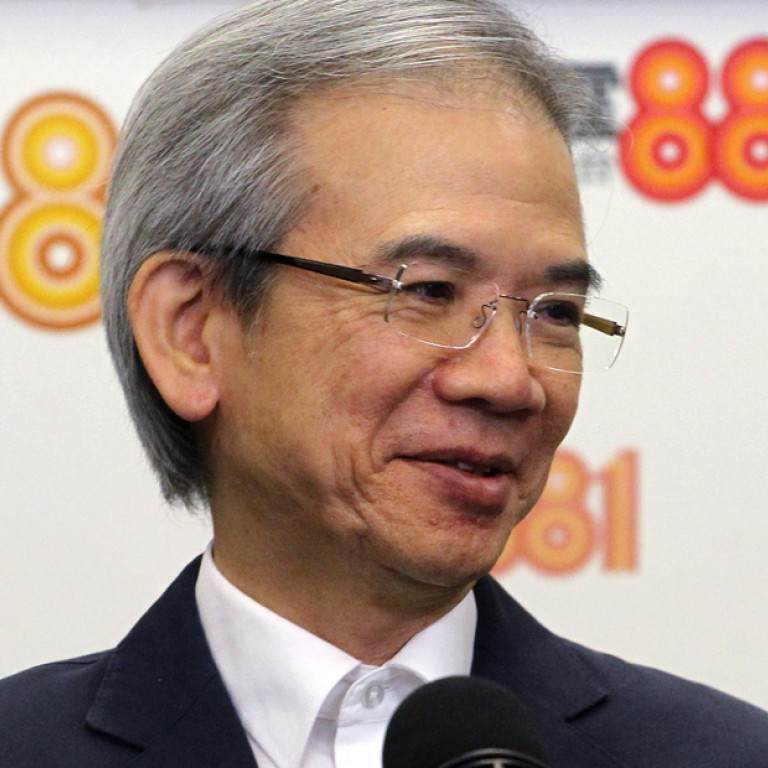
Concerns over failure to award three TV licences ignored
Concerns over failure to award three licences ignored in high-level Exco talks, sources say, as Legco votes against probing the decision
Warnings from top officials that granting just two instead of three free-to-air television licences would be a "tough sell" to the public went unheeded ahead of the Executive Council's controversial decision last month.
Sources familiar with the matter said that during high-level discussions with Chief Executive Leung Chun-ying, a number of senior officials questioned the wisdom of departing from a long-held policy of issuing three licences.
They were backed by some non-official members of the Executive Council, which decided not to award a licence to newcomer Ricky Wong Wai-kay's Hong Kong Television Network (HKTV), sparking public outrage.
Watch: Thousands gather at government HQ for more protests against decision to deny HKTV a licence
While Exco adopts the principle of collective responsibility and there is no formal vote, it is clear there was a difference of opinion at the highest level before the final decision was made.
Among non-official Exco members, convenor Lam Woon-kwong, Fanny Law Fan Chiu-fun and Anna Wu Hung-yuk were in favour of three licences being issued.
Fellow councillors Laura Cha Shih May-lung, Andrew Liao Cheung-sing and Starry Lee Wai-king, were absent from the meeting to avoid a possible conflict of interest. Cha's brother-in-law is an investor in HKTV rival ATV, but the specific reason for Cheung and Lees' absence were not known.
Another two unidentified councillors were also absent for unknown reasons.
No vote was taken at the final meeting. Councillors simply expressed their views to Chief Executive Leung Chun-ying before he ruled on behalf of the whole council.
"During the discussions on free-to-air television licences, several top officials were of the view that when it came to public administration, it was inappropriate to make sudden change to established government policies," a source said. "They were worried that it would be difficult to explain the U-turn to members of the public."
A spokeswoman for the Commerce and Economic Development Bureau said: "In line with the established system of confidentiality, the deliberation of the Executive Council meetings on the subject matter is not made public."
As early as 1998, the government wanted to open the free-television sector to competition and emphasised that it would not limit the number of licences.
In 2011 the Broadcasting Authority, which was renamed the Communications Authority last year, recommended to Exco that all three applicants should receive approval as all fulfilled financial and programming requirements.
Another source said the government had stuck to the position of issuing three new licences until the end of last year.
Commerce minister Greg So Kam-leung reiterated in December that there was no ceiling on the number of television licences to be issued.
"Starting from early this year, signs of not issuing licences to all three applications emerged within discussions at Exco meetings," the source said.
"The remaining issue was whether one or two issues should be awarded. Chief Executive Leung Chun-ying was once undecided on the matter."
Meanwhile, the Legislative Council yesterday voted down the pan-democrats' bid to invoke its special powers to investigate the government's deliberations behind HKTV's fallout.

